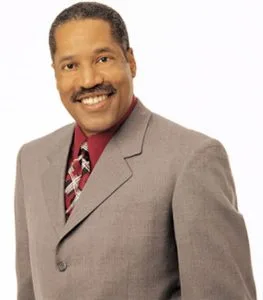Maxim Elramsisy | California Black Media
When Los Angeles hosted its annual car show a little over a month ago at the LA Convention Center, it not only showcased the latest in automotive technology, but the event also transformed into a policy forum on clean energy, previewing what lies ahead for California’s electric vehicle (EV) future.
Battery-powered cars took center stage. They accounted for the majority of the more than 1000 vehicles on display, ranging from cars and trucks to motorcycles, recreational vehicles and semi-trucks.
For Black and other minority advocates in attendance, several concerns emerged. Among them were the impact of the transition to zero emissions vehicles (ZEVs) on Black Californians and how the state will equip low-income neighborhoods with the infrastructure needed when California bans the sale of all gas-powered vehicles in 2035.
“It’s not enough to build the infrastructure in low-income neighborhoods, the people in those neighborhoods need to have access to the jobs installing and maintaining that infrastructure,” said Charles Dorsey of The Dorsey Group, a Black-owned-and-operated Long Beach-based consulting firm.
Speaking on the sidelines of the car show in a meeting room tucked away from showgoers, Dorsey engaged in a lively policy discussion about California’s clean energy future.
“My hope is that this is also an opportunity for us to make a decision to do business with small and growing businesses, understanding that you’re going to have to work with them, so they can get to the same place; and that can be a metric for [success],” Dorsey said. “How many small businesses did we rock with until they became medium businesses because of the contracts that we are intentionally delivering there?”
With an average price of around $58,000 per vehicle, affordability is a significant hurdle for potential EV buyers despite a federal tax credit of $7,500. Concerns about the availability and access to charging stations — often referred to as range anxiety — may also impede adoption, especially in underserved markets where electric infrastructure is less available or apparent.
Advocates for equity say they are hopeful that there will be opportunities for Blacks and others to participate in the clean car value chain.
Plans to build charging stations and related infrastructure to support electric cars are creating new industries and opportunities for labor and manufacturing in the Golden State.
Currently, there are federal incentives for domestic manufacturing and purchasing of domestically manufactured EVs.
With EVs now being more than a quarter of all cars sold in California, policymakers, advocates and industry experts agree that the California automotive economy will be a significant driver of economic transition to zero emission vehicles (ZEVs).
California currently has 93,855 public and shared private electric vehicle chargers, but equity of access remains a concern.
“It’s important that we look at jobs in targeted low-income communities — everything from the innovation and design to manufacturing, production, assembly, construction, installation of these assets. All of those have job components,” said Larry Rillera of the California Energy Commission, speaking during a panel discussion at the car show.



